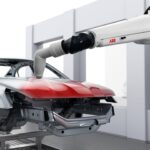In the realm of software business models within the automotive industry, a significant shift is being observed from traditional “custom development” to a more streamlined “IP/platformization” approach. This transition is driven by the need for cost reduction and increased efficiency in software development processes.
The software landscape in smart cars is being categorized into three layers: basic software, application software, and cloud software, each with its own sub-categories. Original Equipment Manufacturers (OEMs) are increasingly moving towards a platformization strategy to cut costs at the root level. This involves restructuring organizational setups, such as the autonomous driving department at XPeng Motors, to focus on AI model development and end-to-end intelligent driving technology.
Moreover, multinational automakers are forging stronger partnerships with China’s local software supply chain to bolster their presence in the Chinese market. Companies like Mercedes-Benz and Volkswagen are investing heavily in R&D centers in China, focusing on intelligent interconnection, autonomous driving, software development, and big data. By collaborating with local suppliers and delegating decision-making power to local teams, these automakers are customizing their offerings to suit the specific needs of the Chinese market.
Software suppliers are also evolving their business models from customized development to IP/platformization, aiming to reduce costs and enhance efficiency. The shift towards platform products, such as cockpit platforms, enables OEMs to achieve economies of scale and accelerate product development cycles. Cloud-native software development and AI large models are also revolutionizing the software development process, enabling developers to deploy and test applications quickly and efficiently.
In the realm of vehicle OS platforms, OEMs and suppliers are working together to develop standardized middleware and operating systems for central computing units. By adopting joint development models and platform-based solutions, OEMs can rapidly create vehicle OS products tailored to their specific requirements. Collaboration models between OEMs, Tier1 suppliers, and software developers are becoming more integrated, fostering open ecosystems that benefit the entire industry.
Overall, the software business model in the automotive industry is undergoing a transformation towards IP/platformization and collaborative innovation. By embracing new technologies and partnerships, companies are poised to drive cost reduction, increase efficiency, and meet the evolving demands of the market.






